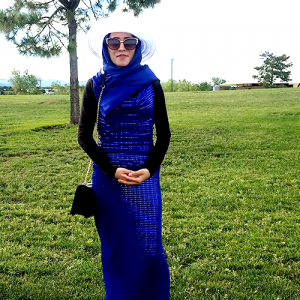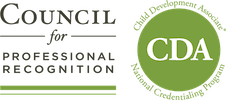 Masuma and her family came to the U.S. in search of safety. Their homeland is Afghanistan, where the Taliban have a long record of killing people who work for western-backed organizations—and Masuma’s husband had caught the Taliban’s eye. “He worked as an electrical engineer for an American company in Kabul, far from the small village where we lived,” Masuma says. “Every couple of months he would come home, and while he was on the road the Taliban stopped his car and made threats. We knew we were in danger, so we left very quickly. Five years ago, we came to Aurora, a top landing spot for refugees and immigrants in Colorado.”
Masuma and her family came to the U.S. in search of safety. Their homeland is Afghanistan, where the Taliban have a long record of killing people who work for western-backed organizations—and Masuma’s husband had caught the Taliban’s eye. “He worked as an electrical engineer for an American company in Kabul, far from the small village where we lived,” Masuma says. “Every couple of months he would come home, and while he was on the road the Taliban stopped his car and made threats. We knew we were in danger, so we left very quickly. Five years ago, we came to Aurora, a top landing spot for refugees and immigrants in Colorado.”
Like many newcomers to our nation, Masuma’s family faced roadblocks. Masuma’s husband had to take a job in maintenance since the U.S. didn’t accept his college degree. Masuma didn’t speak much English, which made it a trial to do everyday tasks like grocery shopping. Her son was only two at the time, and parenting in a new culture imposed added stresses. Immigrant and refugee women like her deal with limited access to quality early childhood education programs, problems providing for their children and trouble navigating new norms for early learning and care. Cultural differences in what is considered good parenting can be an especially hard part of resettlement since attitudes toward child development vary widely around the world.
Masuma decided to learn more about education in the U.S. after visiting her son’s kindergarten classroom last year. “When I saw all the ways the teacher was advancing the children’s mental and physical skills, I realized I didn’t know how to match activities to the age of a child,” she recalls. “I also saw that teaching is a good job because it lets you make an impact on children.”
She had a bit of experience in the field since she had worked as a teacher’s helper for six months in Kabul. She found that she liked working with young children “because they are curious and they want to know everything,” she says. Her brief time with the kids made her eager to know everything she could to help them develop. But she never had the chance to get the formal education that would let her move up in the early education field. Granted, she was able to get a good scholastic foundation before the Taliban cut off schooling for many teenage girls. “I finished high school in Afghanistan,” she explains, “but I was never able to take college courses because we lived in a small village where there was no access to higher ed. So, I was excited when I had the chance to go back to school.”
Last year she got a start on the training she needs to teach, thanks to the Pamoja Early Childhood Education Workforce Program. The program builds a career pathway for women from Afghanistan, Arabic- and Swahili-speaking countries by helping them earn their CDA. Led by Lutheran Family Services Rocky Mountains, it gives immigrant and refugee women the support they need to be lead teachers in ECE classrooms. The women get English classes, CDA courses taught in their first language and in English, mentors who meet with them each week to help with homework, assistance writing resumes and finding jobs.
The program has also helped Masuma be a better mom. “After taking the CDA courses,” she says, “I know much more about children and how to raise them. For example, we had a course on safety, and that matters since I had a daughter two years ago. Now I’m careful to lock my kitchen cabinets up and make sure there’s nothing in my home that could hurt her. I’ve also learned about new things to do with her and my son, who’s now seven. We play some American games, as well as the ones we enjoy in our culture,” she says. She also reads to her children in both English and her native Dari, though sometimes her son needs to help her pronounce words in English.
Like many children from immigrant and refugee families, Masuma’s son has picked up English and fit in more quickly than his parents. But his mom doesn’t want him or his sister to forget their background while learning American ways. “I try to have my children do activities from the U.S. culture since we are here, and they have American friends. But I want them to remember our traditions as well.”
As a teacher, she also wants to build cultural bridges, and her CDA coursework has showed her how. “If we learn a few words from the different languages that children speak, it will make the children feel happier and more accepted,” she explains. “It will also help us communicate better with parents. And that will help us build a strong community—one in which we all work together to do what’s best for young children.”
Pamoja is helping to build the diverse, inclusive community we need, Masuma says. “The different ethnic groups have classes with a translator in the language they speak. But sometimes we all come together for meetings and social events, like a recent one in which we received a certificate for completing our CDA coursework.” These gatherings have given her the chance to meet people from different countries, share traditions and trade ideas on coping with the customs of a strange new country. “I also look forward to serving diverse families,” she says, “once I find a job.”
She’s on her way since she’s already finished her CDA coursework. Now she’s waiting for state funding to assist with paying for her daughter’s day care, so she can put in the hours at a child care setting that are required to earn her credential. And Pamoja is giving her the assistance she needs in applying for the Child Care Assistance Program in Colorado. “The Pamoja program is very helpful,” she says. “Even though the CDA classes have ended, they stay in touch with us and ask us every day what we need.”
All the support that she’s received has inspired Masuma to be ambitious and she hopes to advance in the ECE field. “When my daughter gets a little bigger and I know more English, I’d like to continue my education,” she says. “My goal is to be a director at a preschool.”
But these high hopes for the future haven’t made Masuma forget the place from where she came. “Being away from our parents is a little hard for me and my husband,” she admits. “Their village doesn’t have internet access so we can’t video call them. And sometimes we can’t even get through to them on the phone because the Taliban has attacked cell phone towers near their home. But here we are safe”—and more. Masuma was just seeking refuge when she and her family came to this country. With Pamoja’s support, she’s also found a future and a career.

 Masuma and her family came to the U.S. in search of safety. Their homeland is Afghanistan, where the Taliban have a long record of killing people who work for western-backed organizations—and Masuma’s husband had caught the Taliban’s eye. “He worked as an electrical engineer for an American company in Kabul, far from the small village where we lived,” Masuma says. “Every couple of months he would come home, and while he was on the road the Taliban stopped his car and made threats. We knew we were in danger, so we left very quickly. Five years ago, we came to Aurora, a top landing spot for refugees and immigrants in Colorado.”
Masuma and her family came to the U.S. in search of safety. Their homeland is Afghanistan, where the Taliban have a long record of killing people who work for western-backed organizations—and Masuma’s husband had caught the Taliban’s eye. “He worked as an electrical engineer for an American company in Kabul, far from the small village where we lived,” Masuma says. “Every couple of months he would come home, and while he was on the road the Taliban stopped his car and made threats. We knew we were in danger, so we left very quickly. Five years ago, we came to Aurora, a top landing spot for refugees and immigrants in Colorado.”